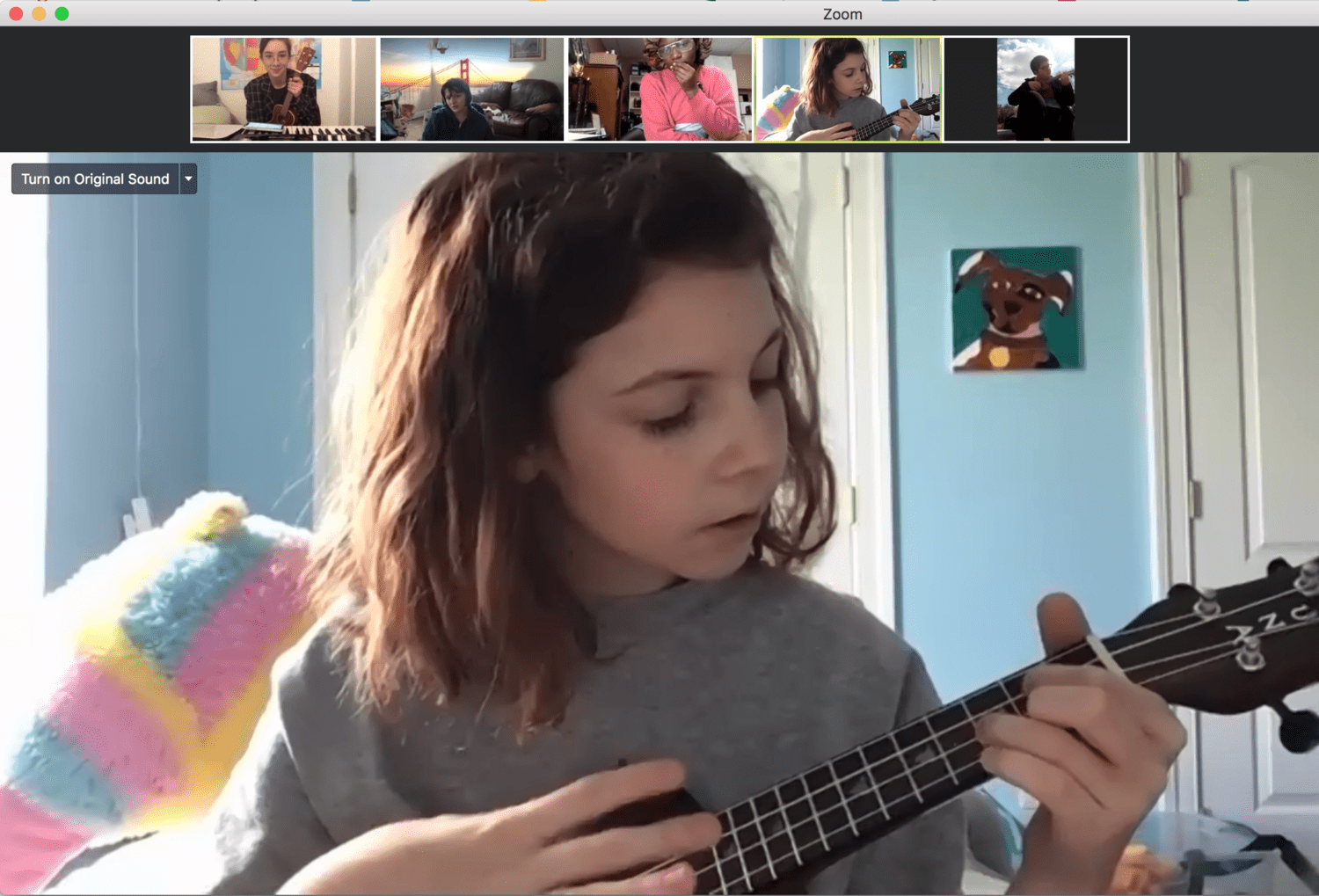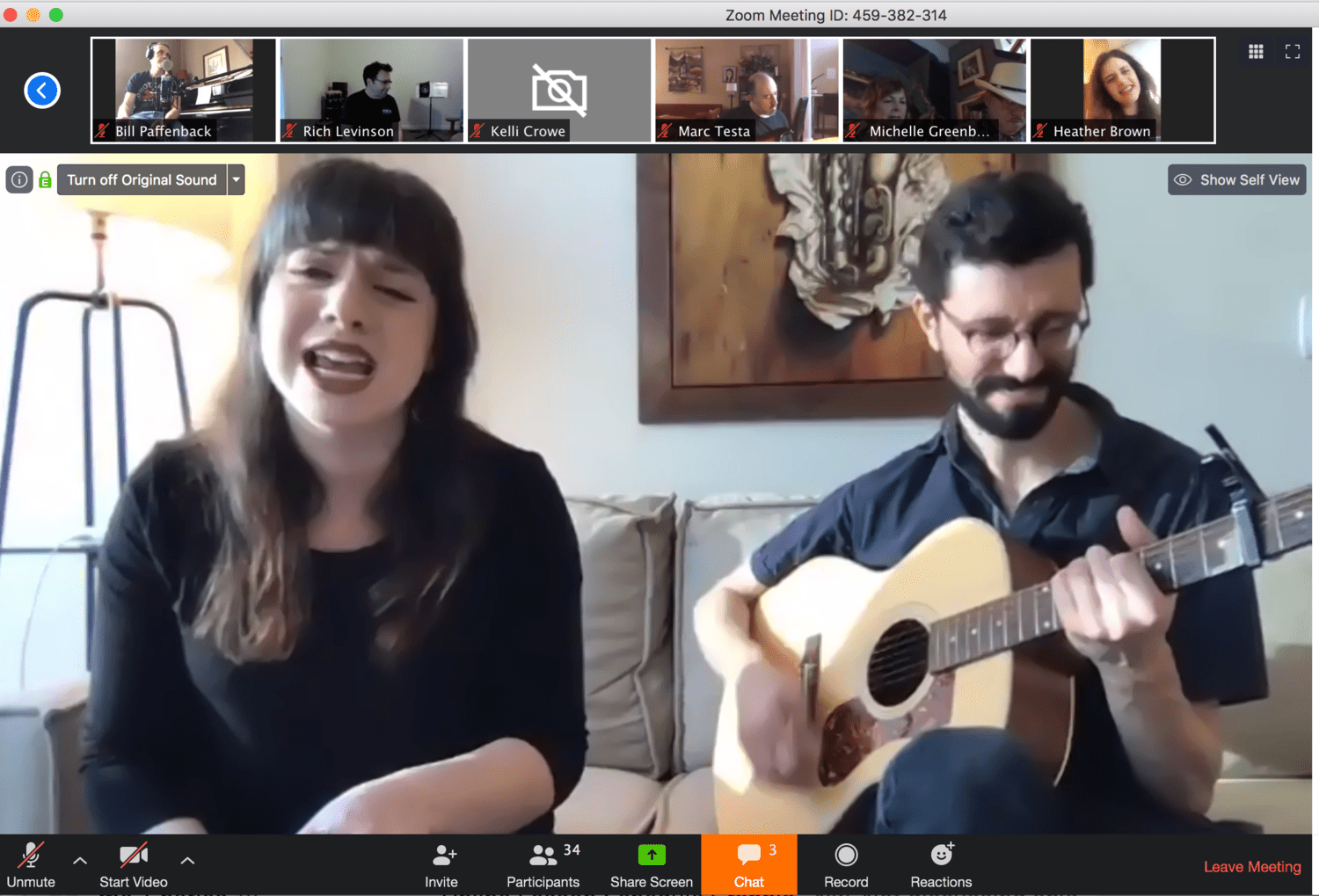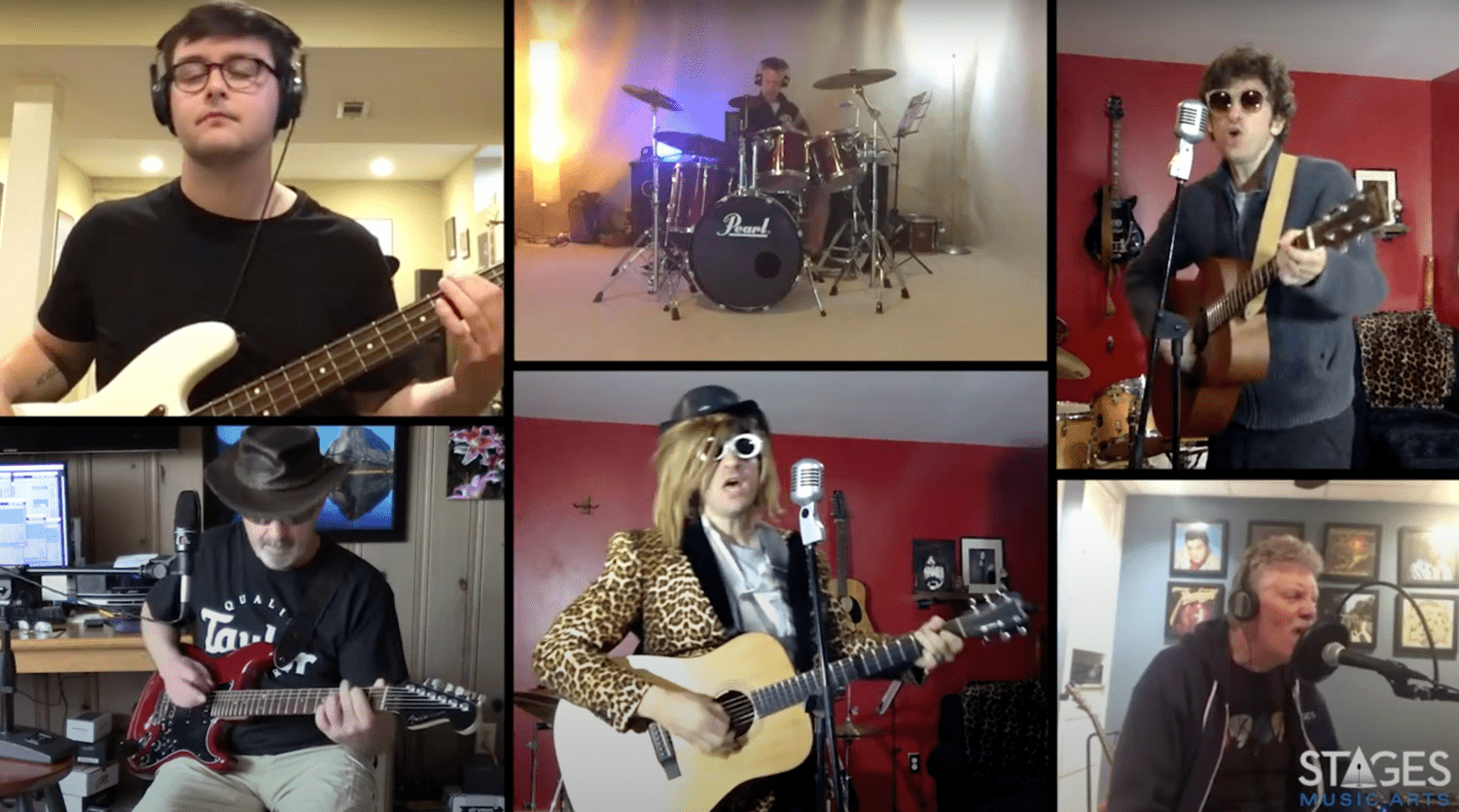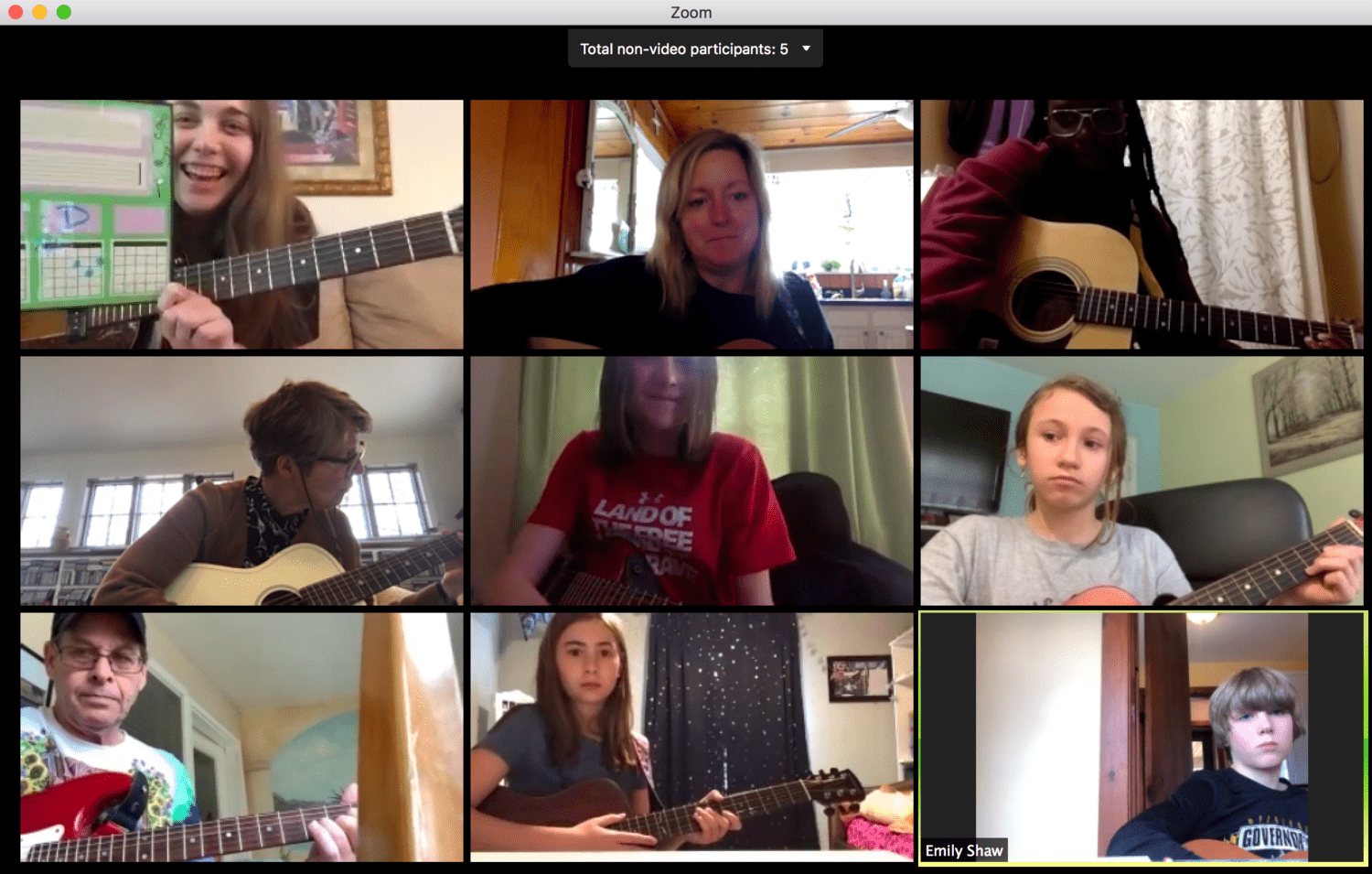Stages Goes Virtual During Coronavirus


By Marc Shapiro
When Stages Music Arts announced it was moving all of its lessons online as the coronavirus pandemic was ramping up, David Melnick wasn’t sure how this would translate for his 10-year-old son, Holden, who takes drums lessons with instructor Jason Cohen.
There’s an intimacy that comes with being in the room with an instructor and being able to play together that Melnick was worried would be lost. But he went in cautiously optimistic, and wound up surprised at how efficient and effective online lessons could be.
“It’s been phenomenal,” he says. “Jason’s able to work on different things with Holden because he sees things differently through the computer. He’s really honing in on precise ways he’s holding the sticks or hitting the drums.”
“Jump in and do [online lessons]. You’ll get a lot of benefit out if it, especially right now. It gives the kids something to do, something to focus on, and the quality of the instruction is not diminished by being in a virtual environment.”
In mid-March, as Gov. Larry Hogan issued a statewide stay-at-home order, Stages essentially launched a new business overnight, moving hundreds of lessons, a number of group classes and monthly open mic nights online, and getting 22 instructors set up to teach virtually.
“We’re just trying to stay relevant and do what we can to give back to the community and make sure that music is still a part of our students’ lives,” says Charles Simon, Stages’ general manager.
On Friday, March 13, the day after Hogan’s order was announced, Stages called an all-staff meeting to tell employees about the plan. Saturday lessons were canceled to give the staff a breather, and Stages hit the ground running the following Monday.

Two employees’ jobs transitioned into providing technical support for instructors – training them on using Google Hangouts for lessons, and later retraining them when Stages moved to Zoom, and helping them set their equipment up for good sound.
To keep Stages’ cozy, homey vibe alive, instructors took photos of their home practice spaces, which were shared on social media as the “new lesson rooms.” Stages also posted instructors’ top five desert island songs.
A series of free online classes were launched, including basic rhythm training; beginner ukulele, guitar and piano; as well as singing and transcription classes.
Spring group programs, which were supposed to culminate with Stages’ JamBourrée concert at Poulet in May, were also moved online. Rather than learning a song together in a group setting, musicians recorded audio and video at home to the same basic track, and Stages mixed it all together to create a full-band performance video. Fifteen such videos premiered online in lieu of the JamBourrée performances.
“We wanted to take our existing model and move it online, keeping as much of it the same as we could,” Simon says.
Robin Munro, whose 10-year-old daughter, Mia, takes guitar as well as voice and songwriting lessons, says she was impressed with how proactive and communicative Stages was with the transition to online.
For Mia, having her lessons every Monday has helped maintain some kind of routine as other activities like school and her swim team have gone away.
“It also shows modeling for children. They see the teachers: ‘Here I am in my home, still practicing,’” she says.
Mia has more time to practice, and the online format has forced her to be more independent. She has to tune her guitar on her own if her teacher notices it’s out of tune, for example. For a creative youngster such as herself, the guitar and songwriting lessons have kept her engaged.
“She comes out inspired and has all new lyrics and ideas,” Munro says. “That’s her spirit, to create and create and create.”

For instructor Shannon Czapla, a jazz vocal performance student at Towson University who teaches voice and a few instruments, lessons have been a sanctuary for her students – a place where they don’t have to talk about COVID-19 and have something to do other than sit around and watch TV.
“A lot of them said that it’s been really helpful mentally, just having a positive space,” she says. “The kids are practicing more, which is really cool.”
It hasn’t been without hurdles though. As a voice teacher, Czapla likes to sing harmonies with her students, which doesn’t work well over Zoom due to latency issues. But there are advantages. If students aren’t getting a chord right on an instrument, she can screen-share a chord chart or a YouTube video to show them.
“We’re just trying to stay relevant and do what we can to give back to the community and make sure that music is still a part of our students’ lives. ”
Brennan McShane, who teaches guitar, piano and ukulele, says teaching online has forced him to re-evaluate his teaching style and focus on concepts he doesn’t usually cover as heavily.
“Because of this, I’ve had major breakthroughs with a lot of students who might not excel as much with my normal teaching methods,” he says. “I’ve found that many of my students have made great use of the extra time available to them and have gotten a lot of practice in.”
McShane also runs the BackStage group program, where students ages 9-12 play in a band setting. He’s seen these students become especially motivated to nail their performances, which were compiled into a full-band video.
“It kind of exposed them in a weird way because they were basically performing a solo for their peers,” he says. “I think they’ve been really motivated to practice. I like what I’m hearing.”
While it has been a time of transition for all involved – from those who run Stages behind the scenes to instructors to students and their families – Stages has worked to make sure its students and families still have music in their lives.
Melnick, who plays in one of Stages’ adult band programs, initially hesitant about the move to online, has a message for those who might be skeptical.
“Jump in and do it. You’ll get a lot of benefit out if it, especially right now,” he says. “It gives the kids something to do, something to focus on, and the quality of the instruction is not diminished by being in a virtual environment.”

Sign up with your email address to receive news and updates.